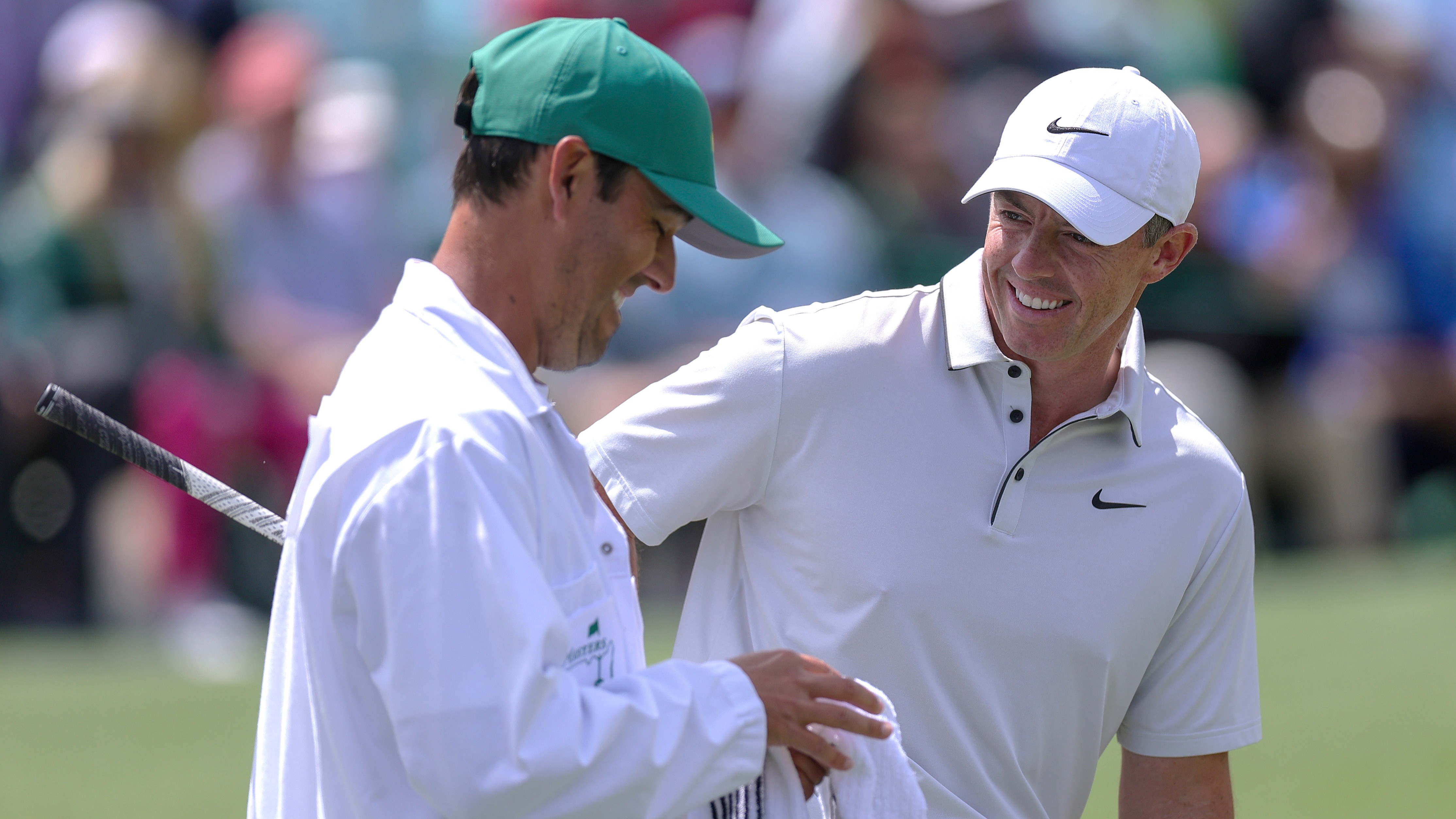What Your Divots Say About Your Golf Swing
In the video and article below, PGA pro Andrew Reynolds discusses what your divots might be telling you about your swing


There are few better feelings in golf than making crisp, ball-first contact and taking a nice divot. But have you ever considered what you can learn from these flying bits of turf? In the video and article below, Golf Monthly Top 50 Coach Andrew Reynolds provides some simple advice that could help you decode your divots.
Your divots often hold clues as to how the club is working through impact and there are three types in particular to look out for next time you are on the course. Here they are...
Heel deep
The first is heel deep, which is when the heel of the club digs into the ground more than the toe. If you notice this type of divot, it's likely the club is closing through impact, forcing you to miss shots left and even, in extreme cases, causing a hook.
Shallow, square divots
This is the holy grail of divots. If your divots are shallow and even in depth from heel to toe, point towards the target, and are square at the exit and entry point, your swing is likely in a very good place.
If your divots look like this but you're not hitting the shots to match, it might be worth checking if the clubs you're using are right for you and your swing.
Toe deep
If the toe is deeper than the heel, that will cause problems. The toe digging into the ground will encourage the face to open up through impact and mean you're more likely to hit blocks or slices.
Solutions
If your divots are either toe to heel deep, your first port of call is to check your address position. Take care over your body alignment and set an athletic posture with your weight over the balls of your feet (not on your heels or toes). In the ideal position, the butt of the club should be a hand’s width from your thigh.
Get the Golf Monthly Newsletter
Subscribe to the Golf Monthly newsletter to stay up to date with all the latest tour news, equipment news, reviews, head-to-heads and buyer’s guides from our team of experienced experts.
If you feel like you are in a strong, athletic address position but your divots are still not good, it is time to get your clubs checked. If the lie angles of your irons are not right, heel or toe deep divots are the evidence. Speak to your local PGA professional to make sure your irons are the perfect spec for your game.

Location: Royal Cinque Ports
Andrew was appointed Head Professional at Royal Cinque Ports in 1978, aged just 23. He is only the sixth professional in the club's 125-year history. From 2010 to 2013, he was lead coach for the Mens England “A” squad and helped work with many established European Tour players. Andrew also enjoyed success on the European Senior Tour, most notably his top-20 finish in the Senior Open Championship at Turnberry.
Teaching philosophy:
Different golfers have different aims, so players' hopes must be discovered before a ball is struck. The player is buying our experience to take them on a journey which will, hopefully, exceed their expectations. I try to keep the learning experience fairly light to keep the player relaxed and make the time together enjoyable for us both. We generally need to ‘de-clutter’ players' golfing brains and put a filter system in place to help people understand the important factors.
Most significant influences:
Ernest Jones’s book, ‘Swing the Clubhead’, who stressed that if your set up was neutral, balanced and correct, all body actions were responsive to the club swinging. Peter Thomson, too. He chatted to Henry Longhurst, whom he allowed to explain his simple thinking - set up squarely, point the club at the target, take it away from the ball on the same path that the club attacks the ball on, then from the top of the backswing just bring it back to the ball. Both Jones and Thomson understood the difference between cause and effect. Modern technology allows us to analyse the golf swing in a very technical manner, which has now proved that both were ahead of their time in making a golf swing a simple exercise. We must remember that it’s the clubhead that we are swinging.
Advice for practice:
A structured and disciplined practice session is the only way to develop your golfing skills to the maximum. Always make sure that your setup is perfect before any swing begins - it’s pointless to work on a swing change with an inconsistent and changeable setup. A different setup means a different swing.
-
 The Masters Final Round: TV Coverage, Live Streams, Start Times As Rory McIlroy Battles Bryson DeChambeau And History
The Masters Final Round: TV Coverage, Live Streams, Start Times As Rory McIlroy Battles Bryson DeChambeau And HistoryAll the info on live streams, TV broadcasts, and free coverage of one of the most hotly anticipated final days of any Major as McIlroy battles with DeChambeau
By Patrick Fletcher Published
-
 'I'm Not Going To Stand Here And Talk About Rory For 10 Minutes' - Shane Lowry Frustrated After Late Slip
'I'm Not Going To Stand Here And Talk About Rory For 10 Minutes' - Shane Lowry Frustrated After Late SlipThe Irishman spoke to the media after his round, but he was in no mood to discuss about McIlroy
By Michael Weston Published